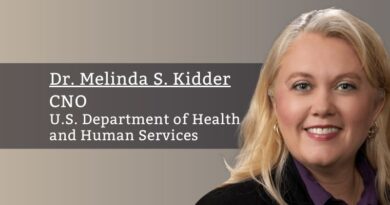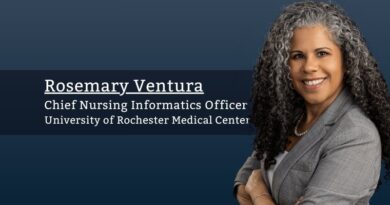Artificial Intelligence
Artificial Intelligence (AI) is reshaping the healthcare industry, offering groundbreaking innovations that enhance medical diagnosis, treatment, and overall patient care. By leveraging advanced algorithms and ML, AI systems can analyze enormous amount of clinical data, identify patterns, and provide insights that improve clinical decision-making.
By enhancing diagnostic accuracy, streamlining operations, and enabling more precise treatments, AI is driving a new era of innovation, ultimately leading to better healthcare delivery and patient outcomes. To know more, read our Artificial Intelligence special issue.

The Future of Healthcare: Pros and Cons of Virtual Nursing
By Dr. Melinda S. Kidder, CNO, U.S. Department of Health and Human Services As the world continues to embrace digital transformations, healthcare stands at the forefront of this evolution. One of the most intriguing developments in recent years is virtual ...

What can Artificial Intelligence (AI) do for Population Health?
By James Trumble, VP of Clinical Integration, TidalHealth Artificial intelligence (AI) and population health are relative newcomers as tools and approaches to change healthcare. AI is the next large disruption, already creating novel approaches to medications and medical diagnoses. The ...

Integrating AI Insights into Healthcare Workflows: Achieving Effective Adoption
By Rosemary Ventura, Chief Nursing Informatics Officer, University of Rochester Medical Center Artificial Intelligence (AI) has transformative potential for healthcare, offering significant improvements in diagnostic accuracy, reduction of the cognitive burden, and enhancement of operational efficiency. However, realizing these potentials ...

Proactive Care Management at Mahaska Health through Remote Patient Monitoring
By Bob Berbeco, CIO, Mahaska Health Healthcare technology is constantly evolving and driving numerous advancements in delivering patient care. Remote patient monitoring (RPM) is a subset of technologies that fall under the telehealth umbrella and a type of telemedicine where ...

The Role of Artificial Intelligence (AI) in Transforming Medical Imaging
By Tanya Dodge, Director of Imaging Services, HCA Midwest Health For one moment, indulge me, close your eyes, and think what it would be like fifty years ago to wake up one morning normal, having a stroke, and your whole ...

AI to Combat Hospital-Acquired Infections – A Revolution for Patient Safety
By Claire Paris, MD MBA FHM, VP of Medical Affairs and Chief Medical Officer, UNC Lenoir Healthcare If we could save upwards of $30 billion a year on avoidable healthcare costs, why wouldn’t we? This is what the CDC estimates ...

Leveraging AI in Revenue Cycle Management for Healthcare
By Jennifer Wheeler, VP of Revenue Cycle, Stone Diagnostics The integration of Artificial Intelligence (AI), automation, and data analytics into the revenue cycle management (RCM) of healthcare facilities marks a transformative leap toward operational excellence. In an era where financial ...

The Evolution of Decision Support Tools in Healthcare: AI as the Future Physician
By Tom Horal, CTO, Brooke Army Medical Center In the realm of healthcare, decision support tools have long been heralded as essential aids for physicians in navigating complex medical scenarios and delivering optimal patient care. With the rapid advancement of ...

Artificial intelligence (AI) will transform the clinical workflow with the next-generation technology
By Dilip Nath, DBA, MBA, CHCIO, CDH-E, AVP & Deputy CIO, Downstate Health Sciences University Introduction AI is rapidly becoming a game changer with its next generation technologies in improvising clinical workflows, promising enhanced diagnostics, personalized treatment plans and optimized ...

Artificial Intelligence (AI) Helps to Tell a More Accurate Patient Story
By Dr. Sowmya Viswanathan, Chief Physician Executive, Marlene Besnoff, CDI Program Director and Dr. Laura Arline, Chief Quality Officer, BayCare Health System In recent years, the healthcare industry has witnessed significant advancements in technology, particularly in the field of AI ...